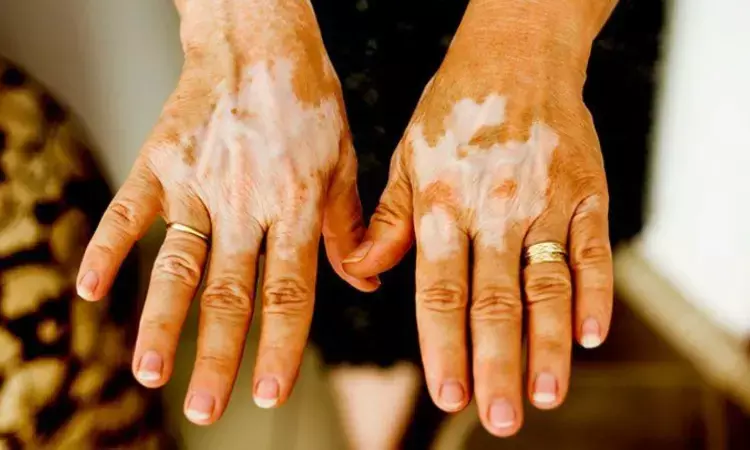- Home
- Medical news & Guidelines
- Anesthesiology
- Cardiology and CTVS
- Critical Care
- Dentistry
- Dermatology
- Diabetes and Endocrinology
- ENT
- Gastroenterology
- Medicine
- Nephrology
- Neurology
- Obstretics-Gynaecology
- Oncology
- Ophthalmology
- Orthopaedics
- Pediatrics-Neonatology
- Psychiatry
- Pulmonology
- Radiology
- Surgery
- Urology
- Laboratory Medicine
- Diet
- Nursing
- Paramedical
- Physiotherapy
- Health news
- Fact Check
- Bone Health Fact Check
- Brain Health Fact Check
- Cancer Related Fact Check
- Child Care Fact Check
- Dental and oral health fact check
- Diabetes and metabolic health fact check
- Diet and Nutrition Fact Check
- Eye and ENT Care Fact Check
- Fitness fact check
- Gut health fact check
- Heart health fact check
- Kidney health fact check
- Medical education fact check
- Men's health fact check
- Respiratory fact check
- Skin and hair care fact check
- Vaccine and Immunization fact check
- Women's health fact check
- AYUSH
- State News
- Andaman and Nicobar Islands
- Andhra Pradesh
- Arunachal Pradesh
- Assam
- Bihar
- Chandigarh
- Chattisgarh
- Dadra and Nagar Haveli
- Daman and Diu
- Delhi
- Goa
- Gujarat
- Haryana
- Himachal Pradesh
- Jammu & Kashmir
- Jharkhand
- Karnataka
- Kerala
- Ladakh
- Lakshadweep
- Madhya Pradesh
- Maharashtra
- Manipur
- Meghalaya
- Mizoram
- Nagaland
- Odisha
- Puducherry
- Punjab
- Rajasthan
- Sikkim
- Tamil Nadu
- Telangana
- Tripura
- Uttar Pradesh
- Uttrakhand
- West Bengal
- Medical Education
- Industry
Topical tacrolimus effective preventive therapy in patients with unstable acral vitiligo

Topical tacrolimus is effective preventive therapy in patients with unstable acral vitiligo suggests a new study published in the Journal of the European Academy of Dermatology and Venereology.
Acral vitiligo is a significantly distressing condition and tends to be treatment-resistant. The occurrence of new lesions on acral areas further causes greater psychological trauma. Topical tacrolimus has been widely used in the management of vitiligo and its role in preventing flares in other dermatoses such as atopic dermatitis has been well documented.
A study was done to assess the role of topical tacrolimus as preventive therapy in unstable acral vitiligo.
In this single-centre randomized prospective study, 60 patients aged 16–60 years having unstable acral vitiligo with symmetrical lesions were enrolled and randomized (1:1) into two groups. Patients in group A were instructed to apply topical tacrolimus 0.1% ointment on both vitiliginous and normal skin while patients in group B were instructed to apply topical tacrolimus 0.1% ointment only on vitiliginous skin for 6 months. Only the distal hand till the wrist joint was chosen for observation. Vitiliginous patches were assessed monthly for 6 months for a change in the number of lesions and total area involved, extension of preexisting lesions and adverse effects if any.
Results
A reduction in the number of lesions was observed in both groups. The decrease in the number of lesions in group A was 5.6% as compared to 2.3% in group B (p-0.001). The decrease in depigmented area in group A was 10.5% as compared to 4.6% in group B (p-0.048). Treatment failure was seen in 11 out of 60 (18.3%) patients.
Tacrolimus 0.1% ointment application showed effectiveness in preventing the appearance of new lesions in unstable acral vitiligo and hastening the repigmentation when applied on both lesional and perilesional skin in vitiligo.
Reference:
Kumar, D., Thakur, V., Subburaj, K., Bishnoi, A., Vinay, K., Kumaran, M. S., & Parsad, D. A randomized prospective study to assess the role of topical tacrolimus as preventive therapy in unstable acral vitiligo. Journal of the European Academy of Dermatology and Venereology. https://doi.org/10.1111/jdv.19362
Keywords:
Topical, tacrolimus, effective, preventive therapy, patients, unstable, acral vitiligo,Kumar, D., Thakur, V., Subburaj, K., Bishnoi, A., Vinay, K., Kumaran, M. S., & Parsad, D. A, Journal of the European Academy of Dermatology and Venereology
Dr. Shravani Dali has completed her BDS from Pravara institute of medical sciences, loni. Following which she extensively worked in the healthcare sector for 2+ years. She has been actively involved in writing blogs in field of health and wellness. Currently she is pursuing her Masters of public health-health administration from Tata institute of social sciences. She can be contacted at editorial@medicaldialogues.in.
Dr Kamal Kant Kohli-MBBS, DTCD- a chest specialist with more than 30 years of practice and a flair for writing clinical articles, Dr Kamal Kant Kohli joined Medical Dialogues as a Chief Editor of Medical News. Besides writing articles, as an editor, he proofreads and verifies all the medical content published on Medical Dialogues including those coming from journals, studies,medical conferences,guidelines etc. Email: drkohli@medicaldialogues.in. Contact no. 011-43720751


